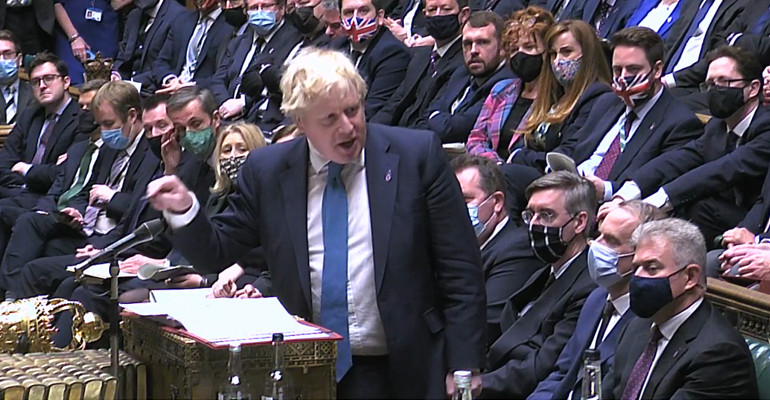Preoccupied with self-inflicted ‘bring your own booze’ garden parties and ‘cheese and wine’ controversies, political agenda the country desperately needs is being starved of attention.

LFF looks at the pressing policies being eclipsed as the ‘illusive’ Sue Gray report dominates the political and media agenda.
1- Cost-of-living crisis
In December, prices for everyday living essentials rose at their fastest rate in 30 years, Office for National Statistics revealed. The Bank of England has warned people should brace for further increases as inflation remains months away from reaching its peak.
Government sources say talks on how to ease the crisis have been delayed because of the ongoing furore surrounding Boris Johnson’s leadership.
Void of any real discussion, debate and policies from government on the cost-of-living crisis which could plunge millions into poverty this year, with over 2.2 million households with children forecast to struggle paying their energy bills when the price cap rises again in April, calls are being made for urgent action.
Keir Starmer made such demands this week, reiterating calls for VAT on energy bills to be scrapped and “targeted action” to help lift households out of poverty.
“Johnson and the Tories are scrambling to save their own skins, hopelessly distracted by a pending criminal investigation into their behaviour at Downing Street. That is why it isn’t enough to just oppose this Tory government from the sidelines of Westminster – we need to replace them in government,” the Labour leader said ahead of a visit to Glasgow this week.
And it’s not just the opposition and politicians calling the government out for ‘ignoring the reality’ of the cost of living crisis.
Budget food blogger Jack Monroe caused a storm on Twitter, saying that “this can’t go on. The media and the government do not understand what record-high inflation actually means for regular people – the “bubble must be burst.”
2- Climate change
Amid inaction over rising energy bills and their impact on the cost-of-living catastrophe, experts are warning that the crisis is the “most immediate threat” to the UK’s delivery on its long-term climate targets.
In fact, since the partygate scandal began to dominate the country’s political and media framework, climate change and meeting targets have been notably absent from attention and conversation.
Earlier this month, the government’s own advisors at the Climate Change Committee (CCC) warned that the longer the transition to net-zero is delayed and the less it is organised, the higher the costs will be and the chances of Britain meeting its legally-binding pledges to cut emissions will become slimmer.
A new briefing published on January 13 by the think-tank the Institute for Government (IfG), says that unless the government takes urgent action to manage the cost-of-living crisis, “the public and political momentum built around COP26 will fizzle out.”
3– Levelling up
What was one of Johnson’s favourite domestic catchphrases, promises of ‘levelling up’ – bridging social, economic and cultural divide between the affluent south and the comparatively impoverished north – has seemed to have vanquished from the political agenda.
Promises were made that the twice-delayed levelling-up white paper, which will map out a vision to achieve, what the communities secretary refers to “an ambition for every part of England to have a local leader with equivalent powers to London by the end of the decade,” would be published sometime in January.
However, due to further delays, the publishing of the long-awaited paper is now expected in mid-February.
4- Robbing people of the right to vote
As the country remains fixated on partygate furore, last week saw some of the most controversial aspects of the UK’s Police, Crime, Sentencing and Courts Bill defeated in the House of Lords. The defeat was hailed a victory for campaigners who argue that the bill threatens the right to protest peacefully.
However, other measures voted down by the Lords could potentially be added back in at a later date. The government has, for example, indicated that it wants to see the vote against giving police new powers to stop protests if they are deemed too noisy and disruptive, revisited.
Justice Secretary, Dominic Raab, told Radio 4’s Today programme that the government still wants to bring back such measures. “In relation to noise, of course we support the right to peaceful and rambunctious protest, but it cannot be allowed to interfere with the lives of the law-abiding majority,” said Raab.
5– UC claimants face tough new sanctions
News that the Department for Work and Pensions is tightening the welfare system giving unemployed claimants of Universal Credit (UC) four weeks – down from three months – to find a job or else face financial penalties, caused something of a stir, and was certainly the most eye-catching part of the government’s newly launched ‘Way to Work’ employment campaign.
The campaign was flagged up by the embattled PM during another excruciating Prime Minister’s Questions this week.
Suggestions have been made that the Way to Work campaign is an attempt by the government to distract from Boris Johnson’s political woes.
If this is the case, the government is playing politics with people’s lives, with potentially devastating consequences.
As Alison McGovern, shadow employment minister said: “This announcement has more to do with trying to save the prime minister’s job than supporting people into work. It’s just tinkering at the edges – long-term unemployment is 60% higher than before the pandemic.”
Gabrielle Pickard-Whitehead is a contributing editor to Left Foot Forward
Left Foot Forward doesn't have the backing of big business or billionaires. We rely on the kind and generous support of ordinary people like you.
You can support hard-hitting journalism that holds the right to account, provides a forum for debate among progressives, and covers the stories the rest of the media ignore. Donate today.



